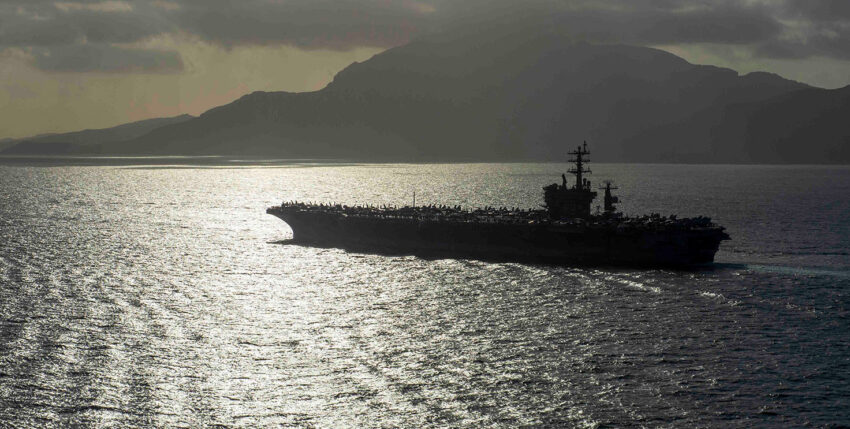The coronavirus pandemic is accelerating the shift in the geopolitical balance of power. Russia is capitalising on the situation in Ukraine, Syria and Libya. Turkey is countering this in these countries and feeding the Nagorno-Karabakh conflict by equipping the armed forces of Azerbaijan with masses of armed UAVs. In the midst of the pandemic, China is further expanding its security policy positioning in Asia and globally. Taiwan, Japan, South Korea and Singapore are countering this. Since 2000, the USA has increasingly focussed its security policy activities on Asia - and this will accelerate in the future.
High time for the EU and its member states to place security policy at the centre of force allocation, despite the foreseeable shortage of funds caused by the coronavirus economic crisis, which will be more severe than the crisis of 2008. For too long, the armed forces have been the piggy banks of the EU member states. Many Western European armies are now too small to be militarily effective. Since 2014, a number of countries have been trying to at least bring them up to the level of capability they have on paper. However, the armed forces urgently need to become larger and significantly more effective again. This applies in particular to the Bundeswehr; Germany must make a contribution commensurate with its size.
The EU is as strong as the sum of its strong Member States. Strong economies are a prerequisite for security. The pandemic will have a lasting impact on global supply chains. The usual German export records are under threat. On the other hand, there are economic opportunities through the relocation of production in order to secure access to strategically important goods, from respiratory masks to medicines and IT. Industry 4.0 and high automation offer new opportunities for high-wage countries too. A rapid revitalisation and at the same time a reorganisation of the economy is urgently required.
Industry is the basis of defence capability. Securing this does not begin with industrial policy, but starts with energy supply. With the so-called energy transition, Germany has created a massive strategic problem and obstacle to development when it comes to the foreseeable relocation of the production of strategically important goods - triggered by Industry 4.0 and accelerated by coronavirus. Since the nuclear phase-out, there has been no viable concept for the energy industry. The coal phase-out has now been added to this. It is unclear where sufficient electricity will come from in the future. It is absurd that neighbouring EU states should have excess power plant capacity available in future in order to have electricity in reserve for Germany.
Europe must make do with less protection from the USA. The basis of the EU will continue to be the member states. They have armed forces and they provide the industrial basis for their equipment. The domestic defence industry must be nurtured so that it can play its part in a strong Germany in a strong Europe.
Bureaucratisation of procurement procedures is not the solution, especially when "fairness" under competition law comes before the actual procurement objective. The world is in the midst of a digital revolution - including the armed forces and conflicts. Overall, European countries are second only to the USA in terms of systemic capabilities - these capabilities must be promoted centrally through more basic research and application development in artificial intelligence, deep learning and quantum computing. Data protection is certainly also important in the digital revolution - but actively shaping it through disruptive technology "made in Europe" is crucial to success.
National armed forces are the basis for European security and defence policy. Not every army has to be able to do everything - the aim must be to complement each other in a planned manner.
Long overdue:
- Integration of European foreign policy with European security and defence policy
- Defined decision-making and action powers and the EU's ability to act
- Forces available to the EU to fulfil tasks within a defined framework.
Strategic challenges for the EU:
- support Member States in digitally revolutionising the structure, networking, interoperability and equipment of their armed forces
- to orchestrate research and business in the field of digitalisation across Europe in order to harness their full civil and defence technology potential for Europe's security.
Text: Michael Stehr; Photo: US Navy











2 responses
The analysis is absolutely correct, but the consequences are not yet right. We do not need to hope that Europe will come to a unified position quickly enough, but must move forward quickly ourselves. In this area in particular, we need a two-speed Europe!
Germany must set an example and join forces with every European country that feels able to do so and integrate accordingly.
Firstly, we are introducing English as a second official language and vocational language in the dual system. This makes it clear that we are not assuming that "the world should be built on the German character". We also need information technology as a separate school subject. In addition, we need to send highly qualified members to the EU Parliament and organise regular meetings of the federal cabinet with the "German core group" in the European Parliament. this would show other countries that we are serious about Europe. We should also pursue European standardisation bilaterally with our close partner states and prioritise this core area in the area of public tenders. Where necessary, laws in Germany and the partner countries must be adapted.
Time is a critical factor here: if we wait for the generation of stateless and stateless e-scooter drivers, the future will have long since been gambled away.
And to all those who defend their nostalgically glorified past against any innovation, while they are disappointed by the unwelcome present, let it be said that "where we are, is FORWARD!"
Outdated view, disconnected from actual national reality and hence so random. Neglects the causal jeopardy coming from within.